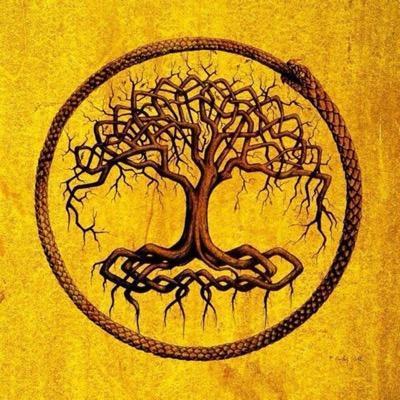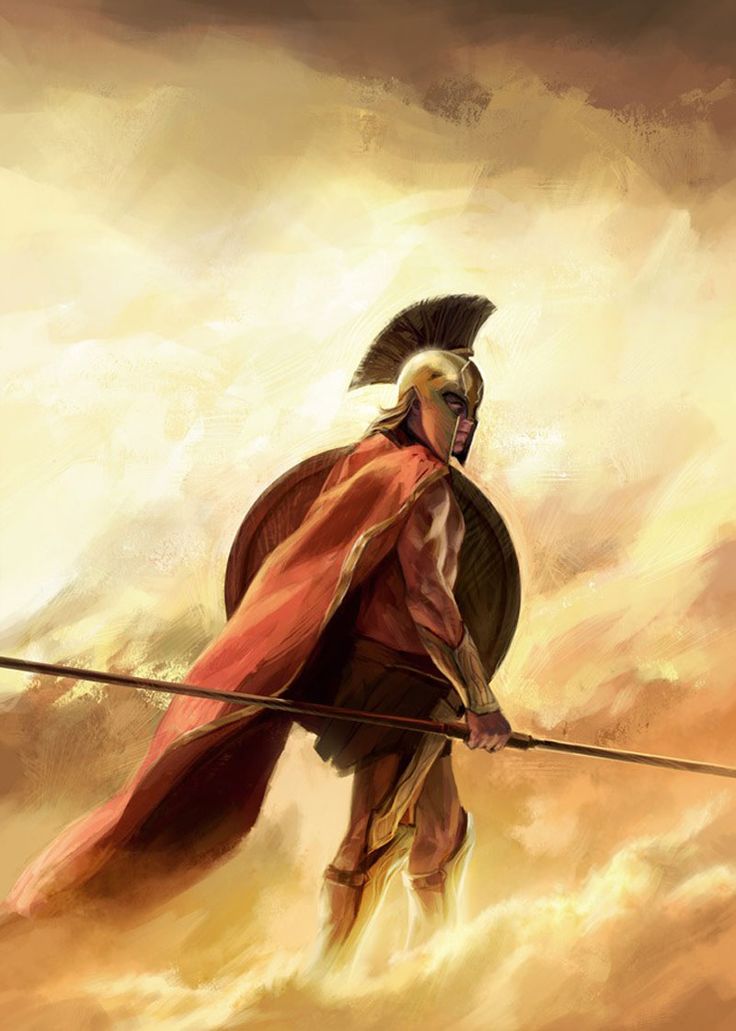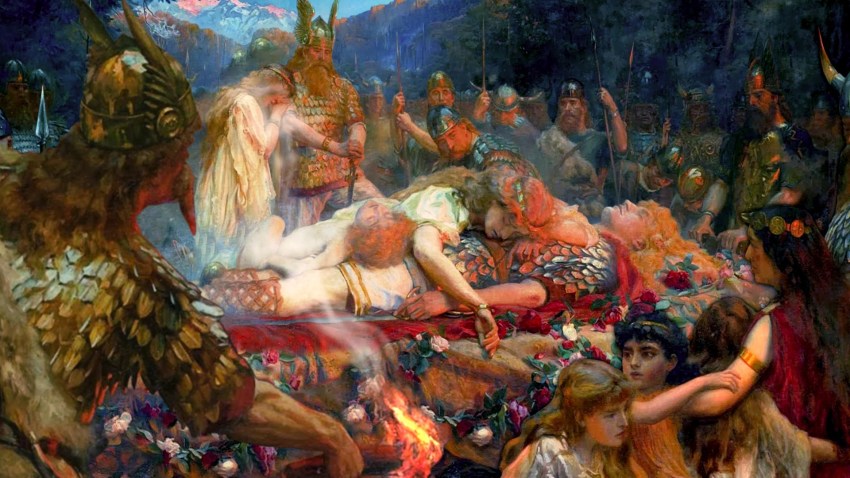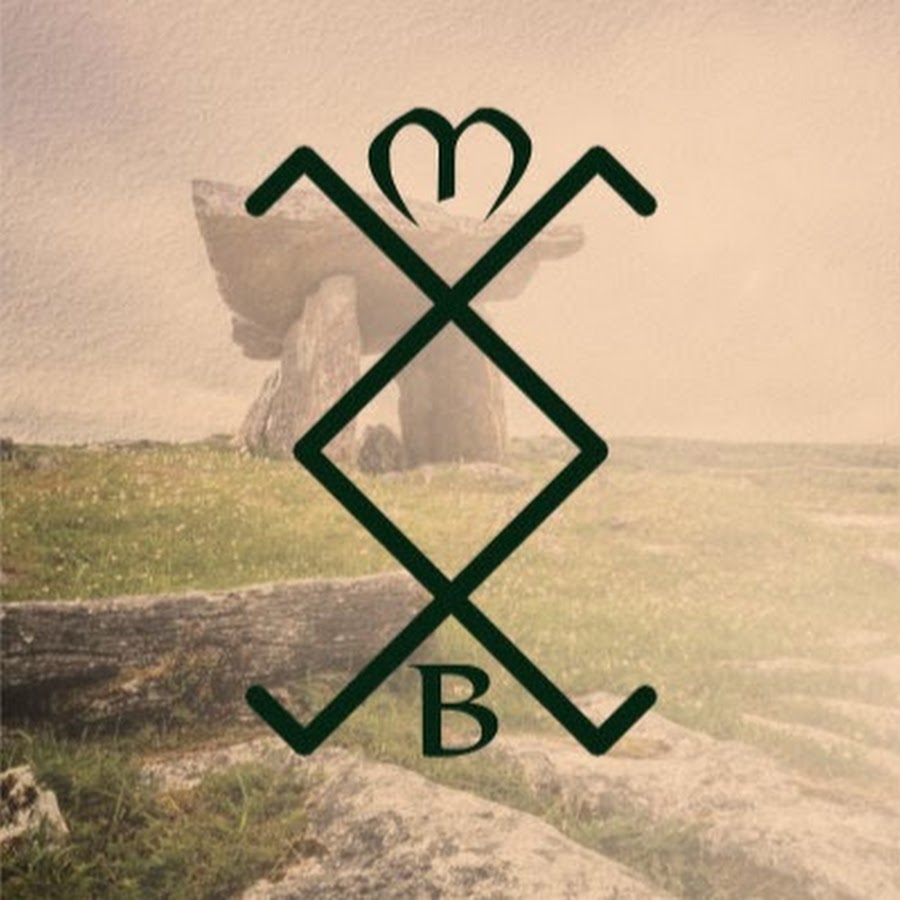The Consequence of Cowardice
by MimirsBrunnr
“But as they pursued those that fled to their camp they witnessed a most fearful tragedy; the women, standing in black clothes on their wagons, slew all that fled, some their husbands, some their brethren, others their fathers”~ Plutarch On the Cimbri
Plutarch’s words give us a powerful insight into the minds of our northern Ancestors. Of course, this is a Roman writing and as such it may be a little embellished, but there can be no doubt that our forebears viewed acts of cowardice, with the utmost disdain. Tacitus in his book Germania (On the origin and situation of the Germans 98 AD) re-emphasises this harsh perspective
“To give ground, provided that you return to the attack, is considered good tactics rather than cowardice. They bring back the bodies of the fallen even when a battle hangs in the balance. To throw away one’s shield is the supreme disgrace, and the man who has thus dishonoured himself is debarred from attendance at sacrifice or assembly. Many such survivors from the battlefield have ended their shame by hanging themselves.” ~ Tacitus
The notion that dropping one’s shield was an act of the utmost cowardice, is also shared by the great Greek warrior tribe the Spartans. The phrase “On your shield or with it” is often said to be the last words a Spartan man would hear from his beloved wife, before he set off for battle. The Phrase essentially boils down to “victory or death”, leaving no room for “live to fight another day”. In these examples we see the sternness of belief, that there was no greater loss, than the loss of one’s honour. We also see how important the role of the women folk was in maintaining this noble virtue, bravery.
The Gaulish peoples would often mock Roman “tactics” as acts of cowardice. Plutarch gives us a great example of this in his work “Lives of the Noble Greeks and Romans”. Upon the meeting of the Roman army and that of the Teutons in the Cimbrian wars, the Romans under orders from Gaius Marius, hole up in their encampment, refusing to come out and fight. This cowardly behaviour was met with mocking from the Noble Teutons. After several days of pointless pleading and goading to get the cowardly Romans out of their hole, they finally gave up. On their way though, they had a few lasts lighting remarks for their adversaries.
“And they marched close to the camp, inquiring whether the Romans had any messages for their wives; “for,” said they, “we shall soon be with them.”~ Plutarch on the Teutons
It should also be noted that the Romans lived up to the accusations of cowardice. The Teutons, along with the Ambrones, were eventually defeated by the army of Gaius Marius, after they were attacked in the most cowardly manner. Whilst eating and bathing with their families, the Romans took advantage, and launched an ambush. Even when facing the impossible, the Ambrones, stood their ground, beating on their shields and chanting their holy name. So proud was their chanting it can still be heard in noble hearts to this day.

This custom of disdain for cowardice was not only present in ancient times. Many of you will already know that under Norse law, to call someone a coward was a serious charge. Many such an accusation would end in a duel, less the accused wished to live in shame in the shame of the title, by accepting it. This was true of Anglo-Saxon culture too. Wulfstan who wrote the laws for Both Canute and Æthelred, clearly states,
“And the man who shall flee from his lord, or from his comrade, by reason of his cowardice…. Let him forfeit all that he owns and his own life”
From this it is clear that anyone guilty of cowardice was rendered practically dead to the society, or worse still, relinquished of their life by it. So why was cowardice seen as such a crime? To get insight into this we must try to understand how our ancestors viewed cowardice.
Most of our modern ideas of Cowardice are similar to that of Aristotle’s, which is that cowardice is driven by excessive fear, and that all men are capable of succumbing to it. To be a coward therefore is to “fear all things”. The brave man, on the other hand is someone who conquers this instinct. Aristotle also mentions another possibility to overcome fear, “rashness”, which he states is the quality of a madman that does not know fear. It is interesting here that when giving an example of this, Aristotle uses the Celts.
“Of those who go to excess he who exceeds in fearlessness has no name, but he would be a sort of madman or insensible person if he feared nothing, neither earthquakes nor the waves, as they say the Celts do not” ~ Aristotle on the Celts
This is an intriguing little addition to Aristotle’s work and may point to some fundamental clash of philosophical outlooks. When we look back at tribes like the Cimbri and their actions to our modern mind they can appear rash. They seem to fight with wanton abandonment, almost as if they have no value for their own lives or that of their loved ones. So, were they rash, or is it a case of completely different philosophical perspectives?
I doubt even the Celts or the Cimbri would deny fear plays a part in cowardice, but for them there seems to be more at play. Could it be that the uncivilised “barbarians”, unlike their “civilised “counterparts, did not see fear as a motivational force? This would render it obsolete as an excuse, and thus anything fear based would be a choice made, not an instinctual action. If it was viewed as a choice, not an unavoidable consequence, this could explain its harsh treatment. Richard Abel, in his work “Cowardice and Duty in Anglo-Saxon England” comes to the same conclusion, that “cowardice was essentially a choice” or at least viewed that way in Anglo-Saxon times.

In this modern world, these subtle differences can be hard to see. We live in a culture entrenched in baseline emotions. Fear, lust, and the rest dominate our societies, where everyone has an insincere excuse based on some visceral urge, or emotion. It’s never anyone’s fault, there is always some reason for their lacking. These animalistic “forces” act as kind of an emotional currency. Any time you feel bad you can exert some primitive feeling as a quick fix. Mimic fear to get sympathy, indulge in lust to get the Amygdala kick. It has become quite popular, the “emotional vampires “among us sucking on that sympathy like their lives depended on it, because they do!
What if our ancestors had conquered such unevolved urges? That, unlike their “civilised” counter parts, who pondered and excused these “instincts”, they rose above them. What force, though, has the power to render the primitive obsolete, whilst still maintaining a devotion to all that is natural?
Where fear is a problem in our modern societies, like the military, we use “regimental discipline” and military drills. This serves the man by replacing emotional responses with habits developed in training. Now, from all the texts I have read on our ancient Forebears, military discipline was not one of their qualities. They, as Aristotle suggested, often appear rash, almost overly emotional. They did not keep fear at bay by remembering drills; something else drove them, some higher arc, some higher principle. There is only one force I know of that can reduce fear to a “choice” and still hold nature in reverence, and that is love.
To my mind, our ancestors, far from being uncivilised, were in fact, truly enlightened. To give in to fear was to forsake your love for your family and folk. It was to hold a primitive urge above all you hold dear. It was to reduce life itself to a desperate struggle of the primitive mind, instead of lifting it up to the most sacred of all the gifts of the Gods and Goddesses. Their “rash “appearance, was not due to “madness”, but an expression of their reverence for life. The Cimbri may have died on that battlefield many years ago, but in that moment they truly lived. A modern man could live a hundred lifetimes and never know such freedom. Never knowing the true value of the breeze upon his face, or the precious smile of a loved one. The civilised mind, the slave mind, recoils in fear at such a sight. unable to process it declares it madness, because he who has never lived, can never know life’s meaning. They spend all their time avoiding it, and reasoning their way out of it. These societies produce “thinkers” – they forever talk about life, without ever living it. Our “barbarian “Ancestors did not talk it, they walked it, it embodied every action they made. They left us no books, only their deeds from which we must learn.
Love does conquer all, but not in a pitiful manner. Love sets about routing from the battlefield of life all illusions, all fears. A man who can wield the power of love in all areas of life, is the unbeatable, the immovable object. Fear is an illusion, it seeks to trick you, make you believe that existence no matter how pitiful is more important than living. It plots to turn slavery into an “option”, and blame the righteous for the ills of the world.
It is important to remember when I speak of love, I do not mean some pitiful modern expression of it. Love only has value if it is discriminatory. The idea that anyone can love all things equally is a lie told by cowards to convince themselves their cowardice is enlightenment.
Friedrich Nietzsche expressed this best when he said,
“I have often laughed at the weaklings who thought themselves good because they had no claws.”
Slavery was seen as a fate worse than death, as it strips the man of his manhood and reduces his children to the property of another. This is the true goal of compassion, to refuse suffering at any cost. It is only in the Germanic and Celtic languages, that the word “freedom “originates in the word for love. Only in the ancient North does love set you free. Only in the ancient North is freedom seen as the ultimate expression of love. Thus, a man who claims to love his folk and family, could never see slavery as an “option”.
As much as the images conjured by his words disturb me, to emphasise this point, I will add the second part of the Plutarch quote I mentioned at the beginning of this piece.
“the women, standing in black clothes on their wagons, slew all that fled, some their husbands, some their brethren, others their fathers; and strangling their little children with their own hands, threw them under the wheels and the feet of the cattle, and then killed themselves. They tell of one who hung herself from the end of the pole of a wagon, with her children tied dangling at her heels.”
They may have appeared rash to the “civilised”, but they knew the true beauty of life, to love without excuses. Through their enlightened minds they pinned all their hopes and dreams to love’s banner, refusing to accept anything that would debase them, anything that would reduce their value. This is why they never succumb to the temptation of ignoble “tactics”, or alien notions of civilisation. If they were to live, it must be a life that is theirs, not the life of a snivelling coward, who reveres existence above living. They instead revered the true nature of life, they revered their ability to dance their dance, to sew upon its tapestry their inner most beauty. They were the true artists, the truly noble of men. These men saw the fate of Rome, long before its citizens suffered it. They knew that if they were to succumb to the unevolved principles of Rome, they would become chained like slaves to it. They knew the only chains worthy to bind them were that of duty, duty to kith and kin. In this way, they alone knew equality, they alone knew love. They lived as one, sharing bread and memories, greatness or shame. The fate of one, was the fate of all with no exception. In this environment cowardice becomes impossible. For they knew the fate of a cowardly people, they knew the horrors which their blood would have to endure, if they fell victim to its primitive whispering.
Can you imagine a world full of cowards? A world full of bitter, jealous and twisted cowards without any shred of honour, knowing no law, stooping to all manner of treachery and deceit to seize power for their warped desires. With only subservient cowards about them, who could resist their will? The meek could only protest injustice and beg for mercy, but with no just man to hear their calls, their fate would be sealed. A world full of ruthless and pitiful cowards, would become hell on earth. No man, nor beast would be outside its grip, all things would fall into decay and disgrace. In a world such as this, there would be no comfort, no escape. Only hellish screams in the pitch of night, terror would grip all, existence would be a hopeless plight. For all its reasoning, it would become a world of torture and suffering, with no end in sight.
This is why our ancestors abhorred cowardice. This is why they refused to take up “tactics” and “laws” unfitting of their noble nature. This is why the Cimbri chose noble death, this is why Boadicea screamed NO MORE. Now, take a look around you, and tell me that they were rash, that they were naive, that they did not know the true value of life.
I wonder, is their dream of love dead?
The time our ancestors feared most for their children is upon us. A world full of torture and suffering, compounded by cowardice, a world full of slaves. Their names in ruin and their beloved children at the mercy of the sick and twisted. All they endured to avoid this, yet, it is so. I often wonder if sacred thunder storms embody their sorrow. Heavens open, and their tears flood, lightning cracks, assign of their fury. How long will we suffer this? How long will we reduce our love to excuses for our cowardice?
The Question is, are we worthy are our ancestors’ names?
Are we able to pick up their ancient shields, and beat them in rhythm once again? Can we muster the courage to lift our voices and make the earth tremble to the chorus of our ancient names? Do we have the courage of heart to put an end to this suffering, one way or another? Or have we forgotten how to live and love in a manner befitting of our noble blood? Will we be the cowards that chose to value our fears more than all that we love, and consign our descendants to a world without hope?
The choice is yours.













